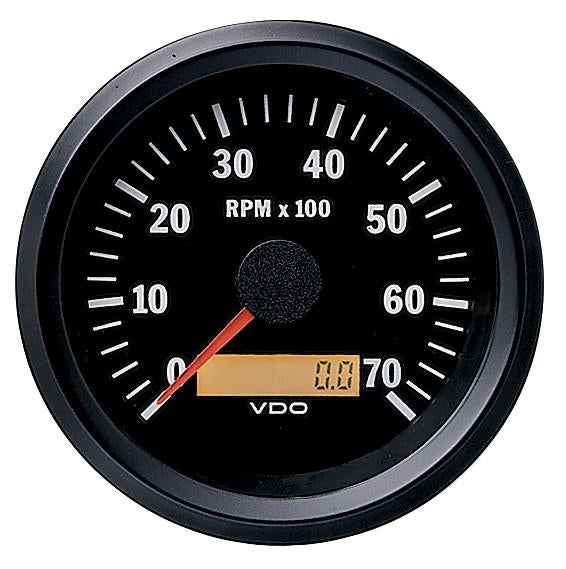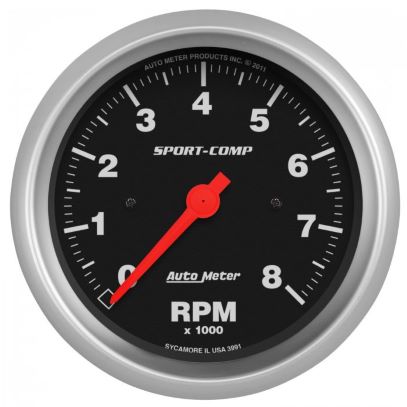Improve Your Driving Experience with a Dependable Tachometer
Improve Your Driving Experience with a Dependable Tachometer
Blog Article
The Significance of a Tachometer in Keeping An Eye On Engine Rate and Efficiency in Automotive Applications
In the realm of automotive engineering, the tachometer stands as an essential tool in the chauffeur's collection, offering a straight home window into the inner workings of a vehicle's engine. Past its function as a mere gauge of changes per minute (RPM), the tachometer offers as an important tool for lovers and professionals alike, using real-time understandings right into engine efficiency and health.
Importance of Checking Engine RPM
Keeping track of engine RPM, or transformations per minute, is a crucial element of auto upkeep and efficiency assessment. Engine RPM directly correlates with the speed at which the engine's crankshaft revolves, suggesting how quickly the engine is running.
In addition, monitoring engine RPM is crucial for performance analysis in auto racing and high-performance vehicles. Maintaining optimal RPM levels is important for accomplishing peak power outcome and acceleration. Racers usually use tachometers to ensure they are operating within the suitable RPM range for maximum performance. In recap, keeping track of engine RPM is not just essential for identifying problems but likewise for maximizing engine performance in various automotive applications.

Benefits of Real-Time Data
In vehicle applications, real-time data plays a critical role in supplying instantaneous insights right into the efficiency and problem of the car. By continuously checking different criteria such as engine rate, temperature, fuel intake, and extra, real-time data supplies countless advantages that add to boosted efficiency and security when driving.
One substantial benefit of real-time data is its capability to alert chauffeurs and specialists to any kind of abnormalities or problems quickly. This proactive strategy enables fast recognition of potential problems, enabling timely treatments to prevent more damages or break downs. In addition, real-time information facilitates efficiency optimization by offering instant responses on driving behaviors and engine effectiveness. Chauffeurs can change their behavior in real-time based upon this details to accomplish better gas economic situation and prolong the life expectancy of their car.

Additionally, real-time data plays a crucial function in modern-day auto diagnostics, making it possible for specialists to promptly detect and attend to breakdowns. This leads to minimized downtime, reduced maintenance expenses, and inevitably, boosted overall car integrity and longevity (tachometer). By harnessing the power of real-time data, vehicle stakeholders can make informed choices that favorably affect both the efficiency and durability of the vehicle
Impact on Equipment Shifts
The tachometer plays important site an important function in optimizing equipment changes by supplying real-time engine rate information to the motorist. When approaching the redline on the tachometer, it signals the driver to upshift to stop over-revving the engine and creating possible damage.
Furthermore, the tachometer aids in accomplishing smoother equipment shifts, particularly in hands-on transmissions. By keeping an eye on engine rate, vehicle drivers can perform equipment changes at the optimal RPM array, reducing jerking activities and decreasing endure the transmission elements. This accuracy in equipment modifications not just boosts driving convenience but likewise adds to sustain performance.
Enhancing Gas Effectiveness
Given the essential role the tachometer plays in enhancing equipment shifts for performance and engine wellness, it directly adds to optimizing gas effectiveness in automobile applications. By giving real-time comments on engine speed, the tachometer assists motorists in preserving the most reliable RPM range for fuel economic climate. When chauffeurs continually keep an eye on the tachometer and readjust their driving behaviors as necessary, they can prevent unneeded fuel usage brought on by over-revving or lugging the engine.
Furthermore, the tachometer aids vehicle drivers determine the most fuel-efficient equipment to be in at any given minute, protecting against the engine from functioning tougher than essential. their explanation In conclusion, the tachometer offers as a useful device in boosting gas efficiency by promoting ideal driving routines and identifying areas for improvement in the car's efficiency.

Making Best Use Of Engine Long Life
The tachometer's function in keeping an eye on engine speed and performance is instrumental in making certain the longevity of auto engines. Monitoring the tachometer enables vehicle drivers to stay within the advised RPM array for their automobile, preventing unneeded stress on the engine and extending its lifespan.

By maintaining track of engine speed and performance trends, chauffeurs and technicians can spot any kind of abnormalities early on, dealing useful site with possible problems prior to they intensify and create considerable damage. In essence, the tachometer serves as an essential device in securing the wellness and long life of vehicle engines.
Final Thought
Finally, the tachometer plays an essential role in monitoring engine rate and efficiency in auto applications. By supplying real-time data on RPM, it allows for efficient equipment changes, improved gas efficiency, and made the most of engine longevity. This device is important for keeping optimal engine efficiency and ensuring the overall capability of a lorry. Report this page